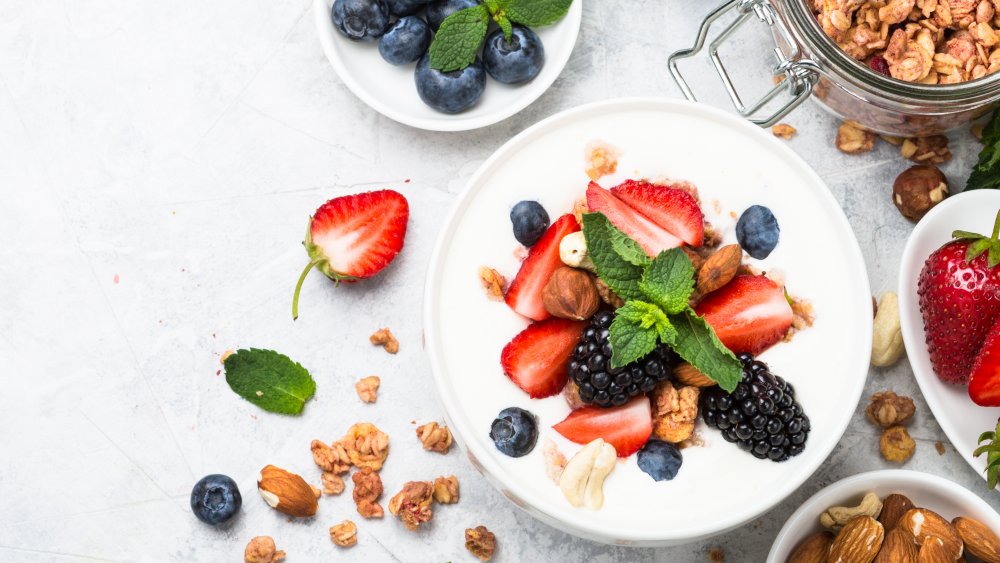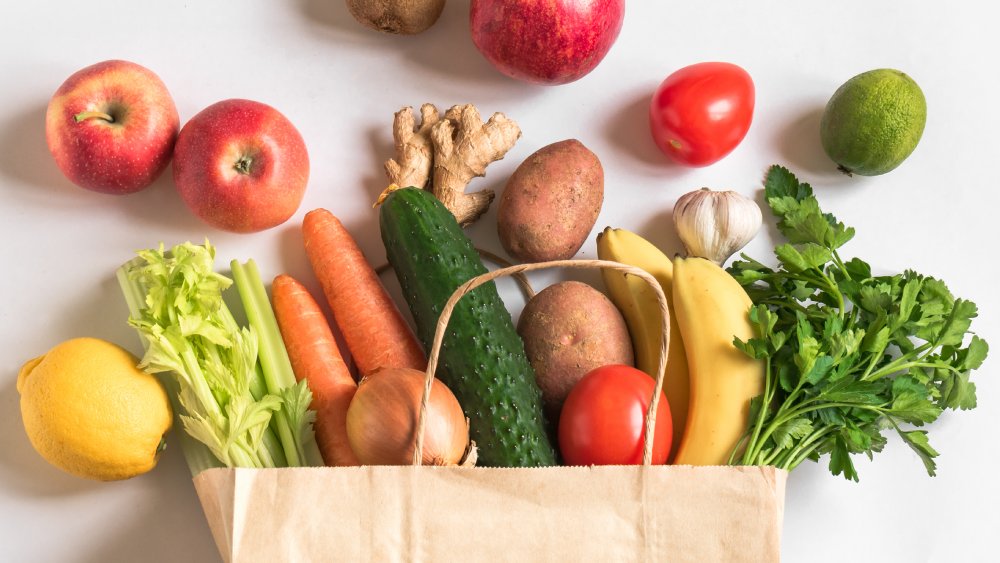Snacking Isn't As Bad As You Think It Is. Here's Why
If you're a big fan of snacking, you'll be pleased to know that it's not as bad for you as we're led to believe. In fact, Jackie Newgent, RDN, culinary nutritionist and author of The All-Natural Diabetes Cookbook, told NBC News that snacking is not only healthy but it can also help with managing your weight. However, to reap the benefits of snacking you need to be aware of what healthy snacking looks like — if you frequently find yourself eating an entire package of sweet, sugar-filled chocolate chip cookies in one day, you're obviously doing more harm than good.
Ultimately, you want to ensure your snack of choice is nutritionally sound. "While there are many grab-and-go munchie foods that aren't so good for you, snacks can actually help fill in nutrient gaps and lead to a healthier overall eating plan," Newgent told NBC News. Better still, if you consume the right kinds of snacks, you're less likely to overeat at breakfast, lunch, and dinner.
Healthy snacking all comes down to what you eat and when you eat it
So what type of foods are considered to be healthy snacks? According to MedlinePlus, you can't go wrong with fruit and vegetables. If you struggle to eat vegetables alone, try pairing carrots or celery with hummus or fresh tomatoes with olive oil and a touch of balsamic. Otherwise, opt for peanut butter on whole-wheat crackers, air-popped popcorn, low-fat yogurt, or a piece of cheese. Regardless of what snack you go for, be sure to watch your portion size.
It's also important to be more mindful of when you should be snacking. "I tell my clients to use a scale of 1 to 10, where 1 is starving and 10 is stuffed," Jessica Crandall, a registered dietitian and a spokesperson for the Academy of Nutrition and Dietetics, told Real Simple. "You need a snack when you're at a 3 or 4." Basically, you want to ensure you are eating a snack because you are hungry, and not simply because you are bored or tired.


